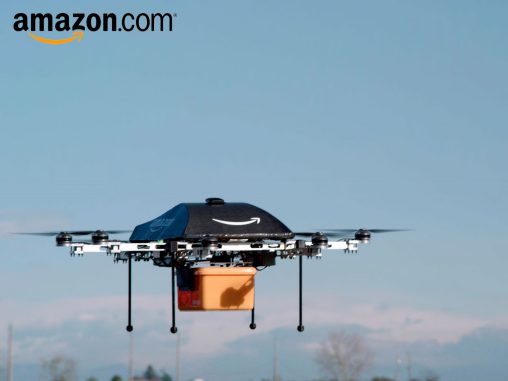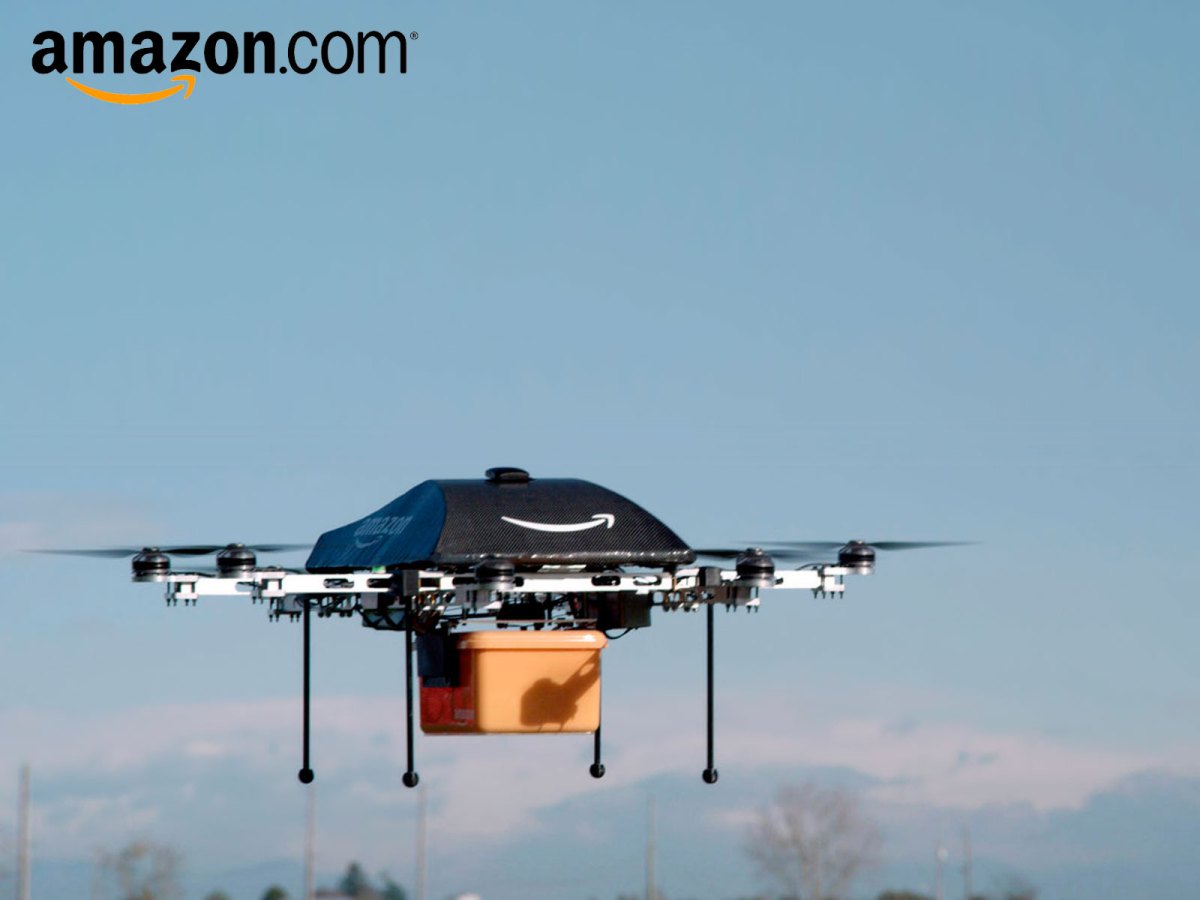“Online retail? We did not see that coming.”
Last Sunday night on the US version of 60 Minutes, Amazon supremo Jeff Bezos pulled off the PR stunt of 2013, unveiling ‘octo-copter’ drones to an apparently unprepared and gobsmacked presenter, Charlie Rose.
“Let me show you something,” Bezos said to Rose, leading him into a secret room.
“Oh man! Oh my God!” exclaimed Rose, a septuagenarian journalist that has otherwise seen it all in his long TV career.
Lying on the table in front of this pair were two small helicopters, similar in design to a Parrot AR Drone, though larger. Bezos then tells Rose, “there is no reason they can’t be used as delivery vehicles”.
Bezos goes on to say that this is not science fiction and that Amazon plans on having these drone helicopters in the sky by around 2018 (“this is still years away”). The choppers will be able to carry up to 2.2 kilograms, which Bezos says accounts for 86 per cent of Amazon sales, up to 16 kilometres from an Amazon fulfillment centre.
Forbes did some research on the weight of Amazon products and discovered the octo-copters could theoretically deliver 8 of the 10 best selling housewares products and all of the top 10 electronics goods on the online store.

The drones will not be manned from a control centre, like those used to strike at terrorists, but will be largely autonomous, guided by GPS co-ordinates and using sensors to ensure they are landing people’s heads instead of front lawns.
Not only will this development drastically reduce delivery times, one of the major hurdles faced by online retailers, it will also be better for the environment, Bezos claims, as these octo-copters are greener than the thousands of trucks currently being used to service Amazon customers.
You can’t help but admire Bezos’ chutzpah. In the weeks leading up to Christmas, the Amazon chief has managed to secure some unbelievable coverage for his online retail phenomenon. As millions of Americans were preparing for Cyber Monday – the day after this broadcasted in the States – Amazon was on their TV screens playing out a literal flight of fantasy; one that combined speed, convenience and a touch of the absurd.
“It will work and it will happen and it is going to be a lot of fun,” Bezos assured Rose during the interview.
Bezos will have to forgive the world’s guffawing response. James Ball from The Guardian certainly thinks little of the plan, skewering it in delightfully cynical post shortly after the 60 Minutes episode:
It’s a brave new world, a whole new paradigm. Or so you’d think if you read most of the breathless coverage about the announcement, which will only get worse: expect a torrent of turgid think-pieces in the next 48 hours about who’s going to get “disrupted” as a result of this latest shake-up – and what it means for the US’s already beleaguered postal service.
Here’s the problem: it’s all hot air and baloney.
While I agree with Ball that this was a publicity stunt, I am also going to be one of those penning a turgid think-piece. All this talk of disruption and new paradigms recalled an anecdote I heard earlier this year over a beer in a local watering hole.
My company that day was the boss of a major appliance brand’s local subsidiary. He told me how he happened to come across a member of senior management from a leading retailer in a social setting. The topic of online retail came up and the retailer said the quote at the top of this story:
“Online retail? We did not see that coming.”
The appliance boss was stunned by this admission. How could a major retailer not have foreseen people wanting the convenience and, as it has turned out, cheaper prices that come from online shopping?
As it turns out, that particular retailer has been slow to move and is currently struggling to come to grips with online competition. It saw online retail as just a fad and nothing to worry about, much like the view that Amazon’s drones are a stunt and nothing to worry about.
The view of this retailer was that big traditional chains have a God-given right to exist. That same myth seems to stimulate the ‘GST on imported goods’ furore that now re-erupts every six months.
Now, I am not suggesting that Amazon or Appliances Online or one of those nasty parallel importers is going to be using drones to deliver refrigerators anytime soon, but I am opining with supreme confidence that online operators are constantly researching and developing new innovations to overcome the hurdles they face.
At present, a major advantage to traditional retail, and disadvantage to online retail, is touch-and-feel. When in a Harvey Norman or a Bing Lee or a Kitchen HQ, a customer can hold a hair straightener in their hands, test the weight of the latest iPad and make sure their desired oven has an ergonomic door handle. If they like what they touch, they can immediately take it home with them.
In a presentation to Narta dealers at its annual conference earlier this year, Danish retail and branding expert Martin Lindstrom said traditional retailers must harness these senses and more:
Online has taken off and killing a lot of you, but we are still human beings. Consumers perform preliminary research, physical inspection and post research. If you own both online and offline channels, then your store will just be a display store. For those that cannot change the entire ecosystem, you must control the physical inspection. You need to have a sensory store which appeals to as many different senses as possible.
Controlling the physical inspection is one way to stay competitive with online but traditional retailers can never become complacent. As Amazon’s publicity stunt has demonstrated, online players are become more aggressive in their marketing and, while these drones seem too far-fetched, there is no doubt they are working on ways to nullify traditional retail’s traditional advantages.

